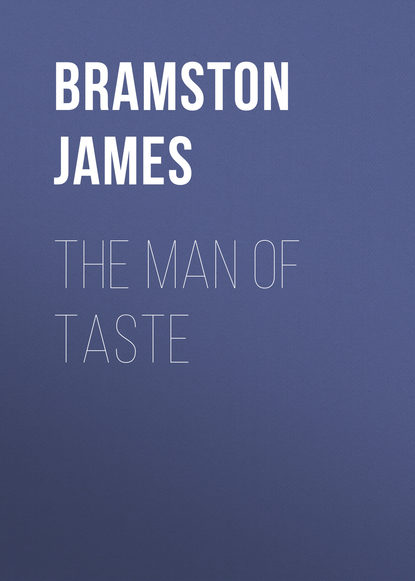По всем вопросам обращайтесь на: info@litportal.ru
(©) 2003-2024.
✖
The Man of Taste
Настройки чтения
Размер шрифта
Высота строк
Поля
2. Treatise IV: "An Inquiry Concerning Virtue, or Merit," Book I, Part ii, Section 3, in Characteristicks of Men, Manners, Opinions, Times (London, 1711), II, 28-29.
3. Reprinted in the Gentleman's Magazine, 1 (1731), 55-56.
4. These attacks are described in J. V. Guerinot, Pamphlet Attacks on Alexander Pope 1711-1744 (New York: New York Univ. Press, 1969), pp. 204-21.
5. Literary Criticism of William Wordsworth, ed. Paul M. Zall (Lincoln: Univ. of Nebraska Press, 1966), p. 50.
6. I owe these details (which correct the DNB account) to Mr. Michael Hunter of Worcester College, Oxford.
7. In his edition of Pope's Works (London, 1797), V, 285 (note on The Dunciad, IV, 570).
8. Gentleman's Magazine, I (1731), 55-56.
A Note on the Text
The Man of Taste was published on 8 March 1733 by Lawton Gilliver in a handsome folio format. A second folio edition (although not so called) was published later in the same month; this was followed within the year by octavo editions in London[1 - Although the imprint on the title page reads "London," this edition was probably printed in Edinburgh. For a reassessment of the number and order of editions of The Man of Taste, see D. F. Foxon, English Verse 1701-1750 (Cambridge: Cambridge Univ. Press, forthcoming 1975), I, 78 (B396-401).] and Dublin.
Using the evidence of advertisements in the two folios and contemporary newspapers, W. B. Todd argues for the priority of the edition he calls "A,"[2 - The Library, 5th series, VIII (1953), 186-87. Todd here summarizes the evidence about publication.] reversing the order previously suggested by Iolo A. Williams on internal evidence.[3 - Points in Eighteenth-Century Verse (London: Constable, 1934), pp. 67-69.] The textual variants are slight and are confined to accidentals, except that on p. 5, line 9, "A" reads "Strife still persists" and "B" has "Strife still subsists." A copy of Todd's edition "A" is reproduced here.
BIBLIOGRAPHICAL NOTE
The facsimile of Bramston's The Man of Taste (1733) is reproduced by permission from a copy (Shelf Mark: *fPR3627/E663b/copy 2) in the William Andrews Clark Memorial Library. The total type-page (p. 7) measures 243 × 144 mm.
THE MAN OF TASTE
W hoe'er he be that to a Taste aspires,
Let him read this, and be what he desires.
In men and manners vers'd from life I write,
Not what was once but what is now polite.
Those who of courtly France have made the tour,
Can scarce our English awkwardness endure.
But honest men who never were abroad,
Like England only, and its Taste applaud.
Strife still persists, which yields the better goût;
Books or the world, the many or the few.
True Taste to me is by this touchstone known,
That's always best that's nearest to my own.
To shew that my pretensions are not vain,
My Father was a play'r in Drury-lane.
Pears and Pistachio-nuts my Mother sold,
He a Dramatick-poet, She a Scold.
His tragick muse could Countesses affright,
Her wit in boxes was my Lord's delight.
No mercenary Priest e'er join'd their hands,
Uncramp'd by wedlock's unpoetick bands.
Laws my Pindarick parents matter'd not,
So I was tragi-comically got.
My infant tears a sort of measure kept,
I squal'd in Distichs, and in Triplets wept.
No youth did in I education waste,
Happy in an Hereditary Taste.
Writing ne'er cramp'd the sinews of my thumb,
Nor barb'rous birch e'er brush'd my brawny bum.
My guts ne'er suffer'd from a college-cook,
My name ne'er enter'd in a buttery-book.
Grammar in vain the sons of Priscian teach,
Good Parts are better than Eight Parts of Speech:
Since these declin'd those undeclin'd they call,
I thank my Stars, that I declin'd 'em all.
To Greek or Latin Tongues without pretence,
I trust to mother Wit, and father Sense.
Nature's my guide, all Sciences I scorn,
Pains I abhor, I was a Poet born.
Yet is my goût for criticism such,
I've got some French, and know a little Dutch.
Huge commentators grace my learned shelves,
Notes upon books out-do the books themselves.
Criticks indeed are valuable men,
But hyper-criticks are as good agen.
Tho' Blackmore's works my soul with raptures fill,
With notes by Bently they'd be better still.
The Boghouse-Miscellany's well design'd,
To ease the body, and improve the mind.
Swift's whims and jokes for my resentment call,
For he displeases me, that pleases all.
Verse without rhyme I never could endure,
Uncouth in numbers, and in sense obscure.
To him as Nature, when he ceas'd to see,
Milton's an universal Blank to me.
Confirm'd and settled by the Nations voice,
Rhyme is the poet's pride, and peoples choice.
Always upheld by national Support,
Of Market, University, and Court:
Thompson, write blank; but know that for that reason,
These lines shall live, when thine are out of season.
Rhyme binds and beautifies the Poet's lays,
As London Ladies owe their shape to stays.
Had Cibber's self the Careless Husband wrote,
He for the Laurel ne'er had had my Vote:
But for his Epilogues and other Plays,
He thoroughly deserves the Modern Bays.
It pleases me, that Pope unlaurell'd goes,
While Cibber wears the Bays for Playhouse Prose.
So Britain's Monarch once uncover'd fate,
While Bradshaw bully'd in a broad-brimm'd hat.
Long live old Curl! he ne'er to publish fears,
The speeches, verses, and last wills of Peers.
How oft has he a publick spirit shewn,





